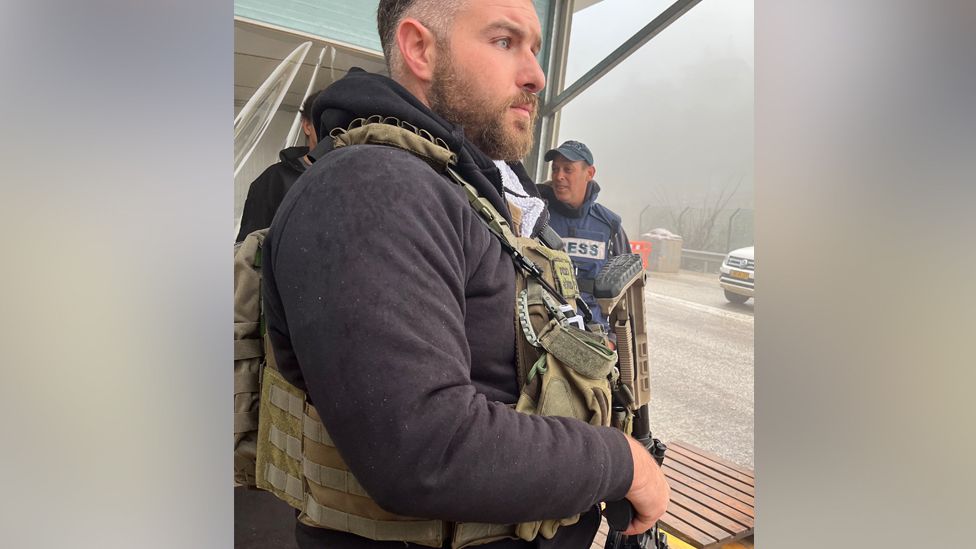It is a lonely drive to Israel's most northern town, Metula, along a spur of land that is surrounded on three sides by Lebanon. That means it is also surrounded on three sides by Lebanon's most powerful armed group, Hezbollah.
The soldiers at the checkpoint on the edge of Metula were all local men, mostly middle-aged reservists with no illusions about the force on the other side of the border.
As the rain lashed down on a miserable, foggy night, one of them, who did not want his name to be published, used his finger to traverse the compass, pointing to the border and Hezbollah's positions.
"To the west a quarter of a mile, to north half a mile and another half mile to the east. So, we are 300 degrees surrounded by the Hezbollah." The other 60 degrees, he said, included the steep road back down to the rest of Israel.
The Gaza war that started after Hamas attacked on 7 October, killing around 1,200 Israelis, mostly civilians, has been devastating. The Israeli offensive that followed has, so far, killed well over 27,000 Palestinians, mostly civilians, according to the Hamas-run health ministry, and inflicted severe damage on Gaza.
The border conflict between Israel and Hezbollah that followed has steadily intensified, but all sides know how much worse it would get if it exploded into a high-intensity war. It was stark and clear to the men on guard on the edge of Metula.
The Israeli reservist continued: "Yes, it definitely can turn into a big war and a big war with Hezbollah is not like Hamas, they are a real army, very trained, greatly equipped and they have a lot of experience, real experience in Syria." Hezbollah intervened in the war in Syria, fighting for the regime of President Bashar al-Assad.
The US secretary of state, Antony Blinken, has no plans to visit Metula on his current Middle East tour, but the long flight from Washington and the travelling times between different capitals in the Middle East must be grimly familiar to him by now. He is back in the region for the fifth time since 7 October.
Mr Blinken has not tried to minimise the magnitude of the crisis in the Middle East. At the end of January, standing next to the secretary general of Nato, he said it was "incredibly volatile… I would argue that we have not seen a situation as dangerous as the one we're facing now across the region since at least 1973, and arguably even before that."
That is quite a comparison.
The Middle East war of 1973 turned into one of the most dangerous superpower confrontations of the Cold War. With US President Richard Nixon submerged by the Watergate scandal, his Secretary of State Henry Kissinger ordered US strategic forces on to their highest level of peacetime alert, Defcon 3, after a report that the USSR was moving nuclear weapons to the Middle East.


